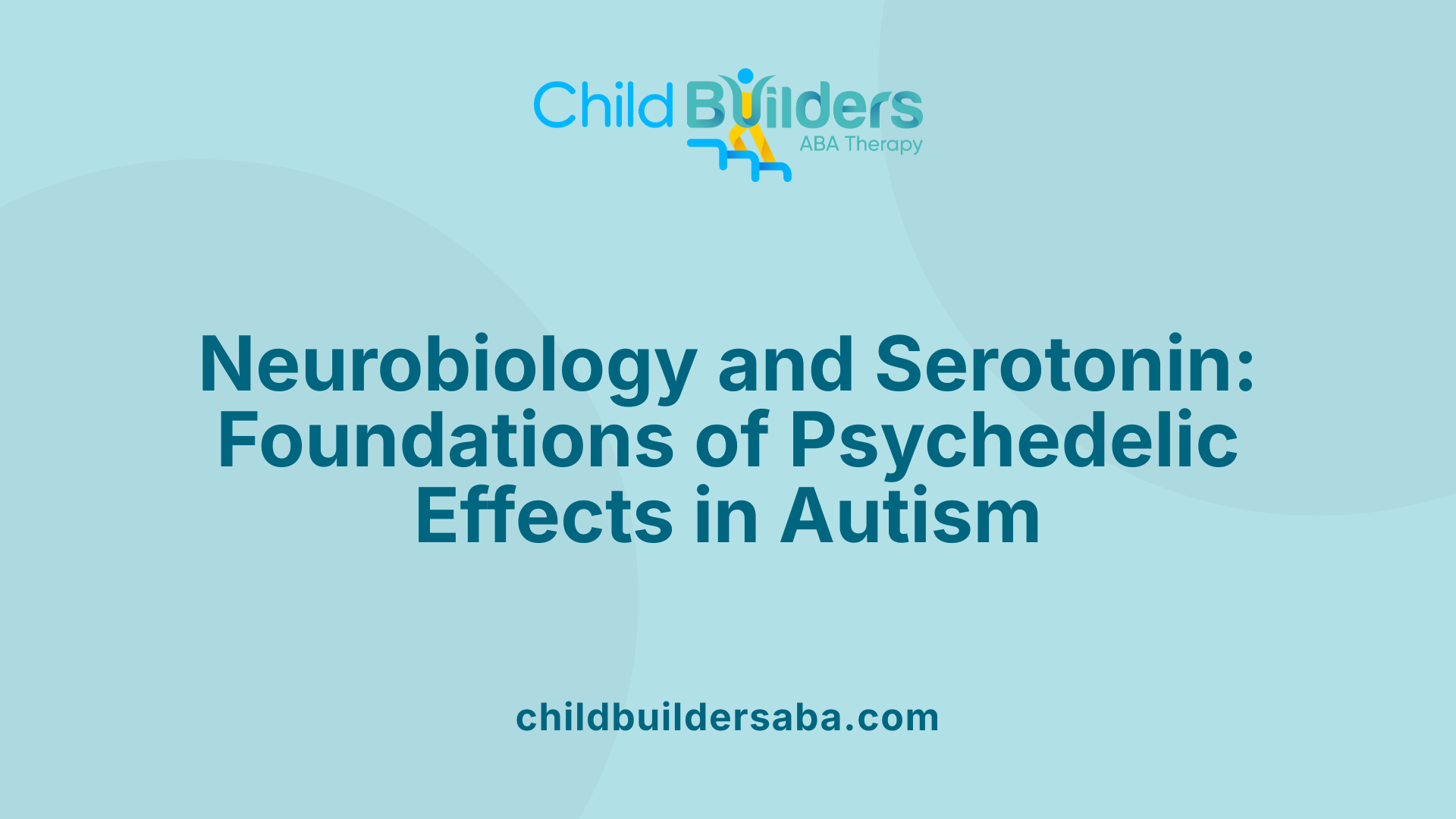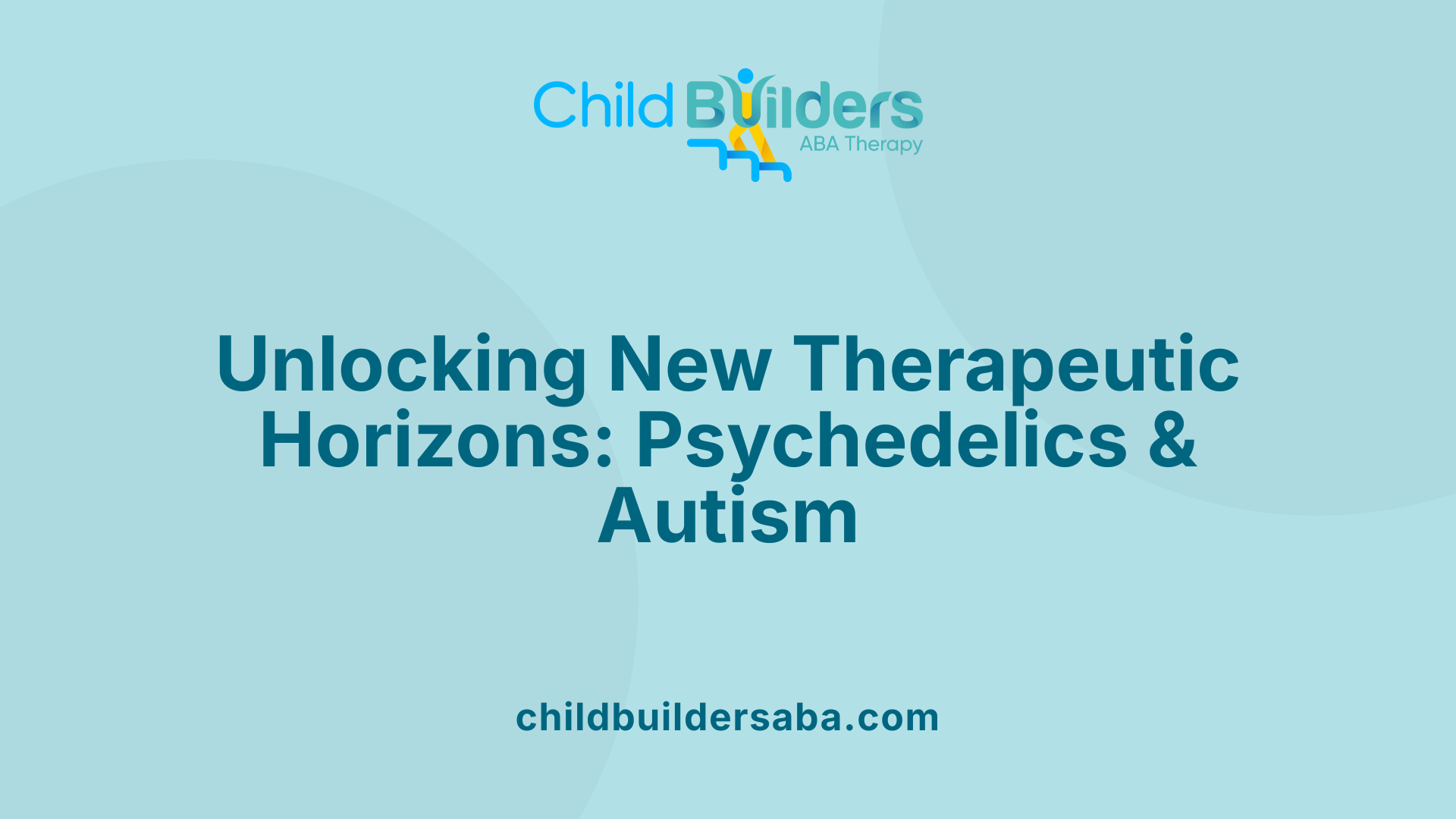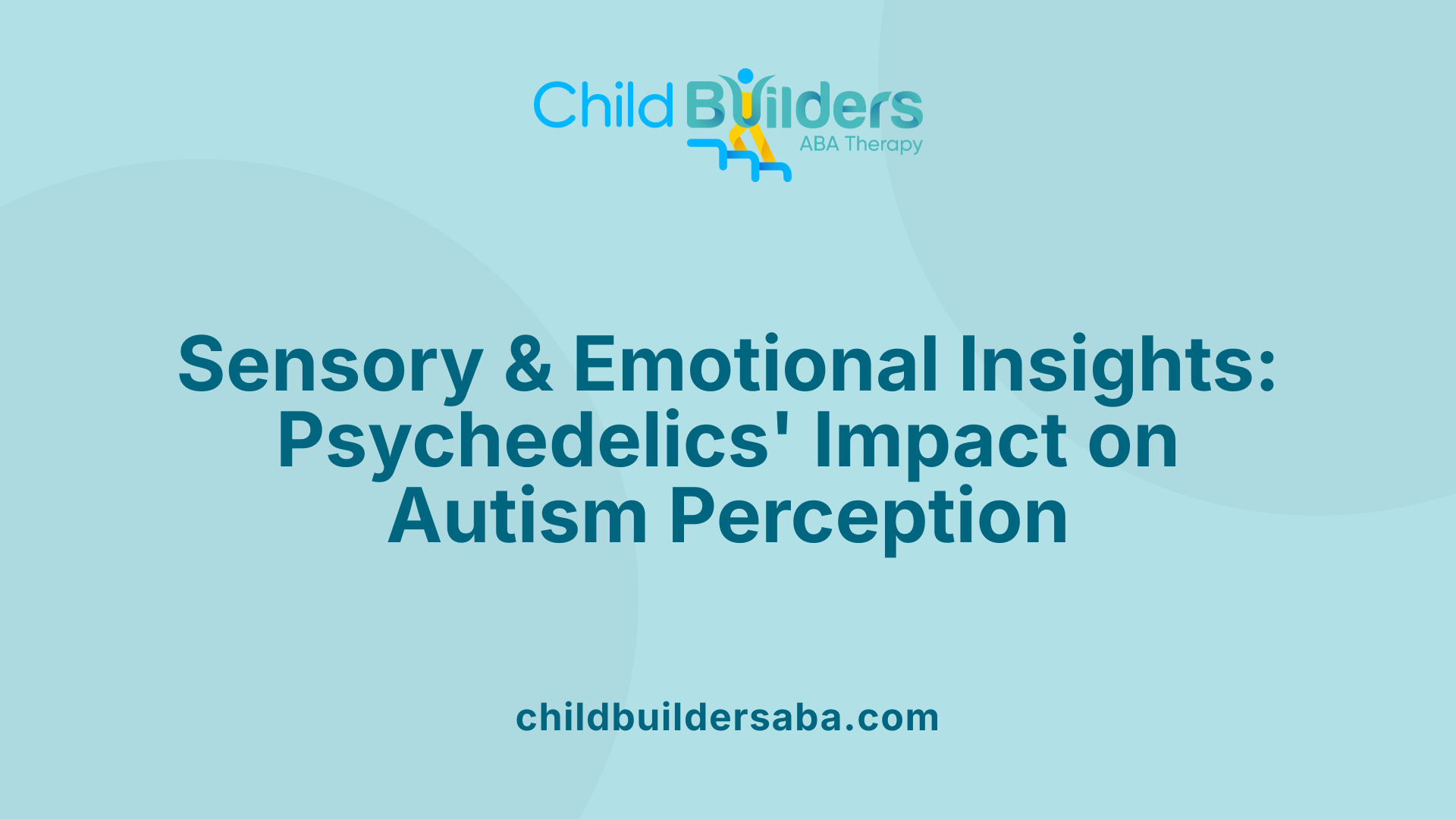Autism And LSD/Psychedelics

Exploring the Intersection of Psychedelics and Autism Spectrum Disorder
Recent scientific interest has refocused on the potential therapeutic applications of psychedelics for autism spectrum disorder (ASD). This exploration is fueled by preliminary evidence suggesting that compounds like LSD, psilocybin, and MDMA may influence neural pathways related to social behaviors, sensory processing, and neuroplasticity. As research progresses, understanding how these substances may modify the autistic experience offers promising avenues alongside significant considerations regarding safety, efficacy, and ethical treatment protocols.
Historical and Contemporary Research Contexts in Psychedelic Use for Autism

What does scientific research say about the effects of psychedelics on autism spectrum disorder?
Research on psychedelics and autism is evolving, with promising yet preliminary findings. Historically, between 1959 and 1974, several studies experimented with LSD to treat children with autism. These early efforts aimed to find alternative treatments after conventional therapies often failed, and some reports noted positive behavioral outcomes. However, most of these studies lacked scientific rigor, such as control groups, and were typically descriptive, making their results difficult to interpret definitively.
Today, a renewed scientific interest surrounds the potential of psychedelics like psilocybin, LSD, and MDMA to improve symptoms of ASD. Recent pilot studies and ongoing research, such as trials at King’s College London, are exploring how substances like low-dose psilocybin affect sensory processing and neural activity in autistic and nonautistic adults. These studies utilize modern tools, including MRI, EEG, and sensory tests, to better understand the biological responses involved.
Moreover, studies involving MDMA have shown promising outcomes. A notable trial published in 2018 involved 12 adults with autism and social anxiety, where MDMA treatment yielded rapid and sustained reductions in anxiety lasting at least six months. Animal models also support the therapeutic potential of MDMA, demonstrating improved social behaviors and reduced autism-related symptoms.
Although these results are encouraging, researchers emphasize the importance of safety, informed consent, and controlled environments, especially considering the unique challenges faced by autistic individuals. Future trials aim to examine broader applications, such as MDMA-assisted therapy for social anxiety and investigating the effects of LSD microdosing on emotional awareness.
In summary, while preliminary data suggest psychedelics could benefit some aspects of autism, comprehensive, controlled clinical trials are essential to validate efficacy and ensure safety. The ongoing research landscape is cautiously optimistic about integrating these substances into autism treatment paradigms, provided rigorous scientific standards are maintained.
The Neurobiological Basis: Serotonergic Systems and Autism

What is the connection between psychedelics and autism spectrum disorder (ASD)?
The link between psychedelics and ASD involves the influence of these substances on the brain's serotonin systems. Serotonin, a neurotransmitter crucial for mood, social behavior, and sensory processing, often shows altered levels in autistic individuals.
Classical psychedelics like LSD and psilocybin act mainly on the serotonin system, especially targeting the 5-HT2A receptor. These drugs can change how signals are transmitted in the brain, potentially affecting social cognition and sensory experiences.
Historical studies from the mid-20th century explored LSD's use in children with autism, often showing some positive effects. Recent research aims to understand how these substances might reduce social anxiety and improve emotional awareness in autistic adults.
Neuroimaging studies, including ongoing trials like the PSILAUT project at King’s College London, use MRI and EEG to examine how psychedelics impact brain activity related to sensory processing and social behavior.
These investigations are part of a broader scientific effort to see if targeting serotonergic pathways could lead to new treatments for autism. Preliminary findings suggest that psychedelics may help modulate neural circuits involved in social connection and emotional understanding.
While promising, this research remains at an early stage. Ensuring safety, understanding individual differences, and establishing clear protocols are critical steps before considering psychedelic therapies as standard options for ASD.
How do psychedelics interact with serotonin receptors such as 5-HT2A?
Psychedelics like LSD and psilocybin bind to serotonin receptors, mainly the 5-HT2A subtype, causing a cascade of neural effects. This receptor activation leads to increased neural connectivity and altered perception, which could potentially influence the social and sensory challenges faced by autistic individuals.
Research into these mechanisms is ongoing. Animal models have shown positive results with MDMA, which also affects serotonergic pathways, in improving autism-related behaviors.
Understanding these interactions better could open doors to more targeted therapies that address the neurochemical imbalances associated with autism.
The significance of serotonin levels in autistic brains
Studies suggest that serotonin levels are different in autistic individuals, although the exact relationship remains complex. Some propose that an imbalance in serotonergic signaling could contribute to sensory sensitivities and social difficulties.
This insight has driven interest in developing therapies that can modulate serotonin activity, aiming to restore balance and improve behavioral outcomes.
Targeting serotonergic pathways for therapies
Researchers are exploring how drugs that influence serotonin receptors could be used to treat autism. While current research focuses mostly on adults, future trials may evaluate whether controlled psychedelic use could be safe and effective.
The importance of carefully monitored settings and informed consent in these studies cannot be overstated, given the potent effects of these substances.
| Aspect | Details | Additional Notes |
|---|---|---|
| Primary receptor | 5-HT2A | Major target for LSD and psilocybin |
| Effects of psychedelics | Increased neural connectivity, altered perception | Potential to affect social processing |
| Serotonin in autism | Altered levels, possible contribution to symptoms | A focus for new therapies |
| Current research | Neuroimaging, clinical trials, animal models | Ongoing studies at King’s College London and beyond |
The promising findings underscore a growing interest in how psychedelics might be integrated into personalized treatments for autism, emphasizing the need for careful, scientifically rigorous research.
Therapeutic Potential and Clinical Trials in Psychedelic-Assisted Autism Interventions
 Recent research suggests that psychedelics might offer promising therapeutic benefits for autism spectrum disorder (ASD), particularly concerning social interactions, anxiety, and mood regulation. Autistic individuals have reported profound feelings of connection, emotional insight, and mental well-being after using substances like LSD and psilocybin. Clinical and experimental studies, including a 2018 trial involving 12 autistic adults with social anxiety, have shown that MDMA can produce rapid and lasting improvements in social symptoms—effects that can persist for at least six months.
Recent research suggests that psychedelics might offer promising therapeutic benefits for autism spectrum disorder (ASD), particularly concerning social interactions, anxiety, and mood regulation. Autistic individuals have reported profound feelings of connection, emotional insight, and mental well-being after using substances like LSD and psilocybin. Clinical and experimental studies, including a 2018 trial involving 12 autistic adults with social anxiety, have shown that MDMA can produce rapid and lasting improvements in social symptoms—effects that can persist for at least six months.
Scientists are actively exploring how these drugs influence the brain’s neurobiology. Psychedelic compounds primarily act on the serotonin system, especially the 5-HT2A receptor. Autism is associated with atypical serotonin levels, and research indicates that modulating serotonergic pathways could help address some core challenges. Neuroimaging studies, such as those at King’s College London, utilize MRI and EEG to understand how low-dose psilocybin affects sensory processing and neural connectivity in autistic versus nonautistic adults.
Ongoing and planned clinical trials focus on several approaches. For instance, studies are examining LSD microdosing to potentially improve emotional recognition in autistic individuals with alexithymia—a condition characterized by difficulty understanding one's own emotions. Future research will also evaluate MDMA-assisted therapy to reduce social anxiety among young autistic adults.
Although these investigations are promising, strict controls and ethical standards are critical. Researchers emphasize the importance of informed consent and supervised settings due to the potent effects of psychedelics and the specific needs and vulnerabilities of autistic populations. Some autistic individuals report significant positive experiences, including increased social connection and emotional awareness, highlighting the potential for personalized therapeutic strategies.
In summary, preliminary evidence indicates that psychedelics could contribute to treating some autistic symptoms. Still, comprehensive, carefully conducted clinical trials are necessary to establish safety, efficacy, and best practices. As the scientific community progresses, the hope is to integrate these insights into wider therapeutic options that respect individual differences and promote well-being.
Sensory and Emotional Modulation: The Effects of Psychedelics on Autistic Perception

Do psychedelics impact sensory perception in autism?
Recent research indicates that psychedelics like psilocybin and LSD influence sensory perception by acting on the serotonin system, specifically targeting the 5-HT2A receptor. These substances can alter neural connectivity in regions involved in sensory processing, potentially offering new ways to understand and address sensory overload common in autism.
A survey of autistic individuals who used psychedelics revealed profound feelings of unity, transcendence, and improved mental health. Many reported that substances such as LSD and psilocybin helped them experience enhanced social connections and emotional understanding. These effects suggest that psychedelics might temporarily normalize certain alterations in sensory processing and social engagement.
Current studies at institutions like King’s College London are examining the biological responses to low-dose psilocybin through sensory-processing tests, MRI, and EEG scans. Preliminary findings propose that psychedelics may improve neural pathways involved in sensory and emotional regulation, possibly reducing symptoms linked to sensory overload.
However, the impact of psychedelics on autism shows mixed results. While some report benefits, adverse effects including increased anxiety or behavioral disturbances can occur. For example, ongoing trials with LSD microdosing are carefully monitoring these responses, especially in individuals with specific traits like alexithymia, a difficulty in emotional awareness.
In summary, although evidence from clinical trials, animal models, and surveys indicates that psychedelics have the potential to modulate sensory perception and emotional processing in autism, researchers emphasize the importance of controlled settings and informed consent. Rigorous, systematic investigation is crucial to understand how these compounds could be safely integrated into future therapeutic strategies.
The Future of Psychedelic Therapy for Autism
While promising signs of benefit emerge from early research, the promise of psychedelics as a therapeutic tool for autism must be tempered by rigorous scientific validation and ethical considerations. Current and future studies aim to better understand the neurobiological mechanisms, optimal dosing, and long-term outcomes of this novel approach. As researchers continue to navigate safety profiles and individual differences, collaborative efforts involving clinicians, patients, and regulatory agencies will be crucial. Despite hurdles, the potential of psychedelics to transform autism therapy offers an exciting frontier grounded in scientific inquiry and a nuanced understanding of neurodiversity.
References
- Could psychedelic drugs improve the mental health of autistic people?
- Tripping over the potential of psychedelics for autism - The Transmitter
- Psychedelics and Pro-Social Behaviors: A Perspective on Autism ...
- Flashback to the 1960s: LSD in the treatment of autism - PubMed
- Could psychedelic drugs improve the mental health of autistic people?
- Evaluating the Potential Use of Serotonergic Psychedelics in Autism ...
- Autism, youth suicide, and psychedelics: A review of the 21st century
- Autistic Psychedelic Community - Meetup





































































































